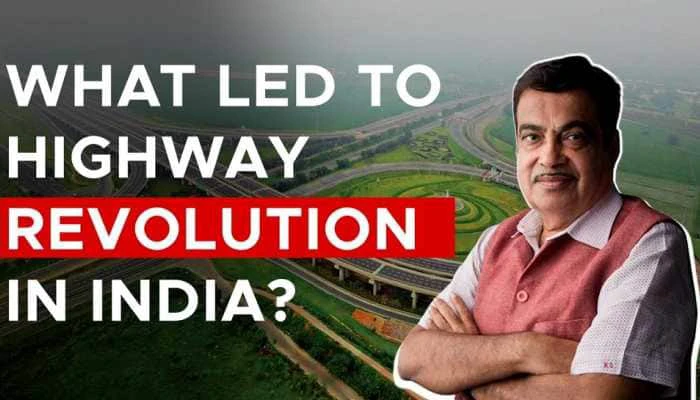“American roads are not good because America is rich, but America is rich because American roads are good,” US President John F Kennedy once said famously.
The statement was reiterated by Nitin Gadkari, Union Minister of Road Transport and Highways in one of the Lok Sabha sessions. What Gadkari meant was that roads are not only a means of travel, but plays an important role in any countrys economic growth. But Indian Roads and Indian Highways, were known for being one of the toughest and dangerous terrains to travel in the world. Indian Road Network was not very popular for its connectivity, however, things have changed for good in last 10 years. Here’s what changed:
:
Road Construction Speed
The pace of construction has increased many folds, with the new PM Modi govt taking charge in 2014 and announcing Nitin Gadkari as the minister for road transport and highways. While in 2013, the Indian Govt built 3 km of road in a day, it changed to 12 km a day in 2014 and today, the govt is laying 37 km of road in a day. The Indian govt aims to take this to 100 km of roads in a day.
Recently, the govt achieved a massive feat of laying 100 km lane of highway in 100 hours. The Ghaziabad-Aligarh Expressway made history by achieving a remarkable feat: the laying of Bituminous Concrete over a distance of 100 lane kilometers in an unprecedented time of 100 hours.
Expanding Road Network
As per data from the govt, before Independence, India had 21,378 KM of total length of the road and in 2023 it has increased to 1,61,350 KM length of road. This has led to experts calling it almost like the ‘Highway Revolution In India’. Recently, India beat China to have Worlds 2nd largest road network just after the United States. Not just this, the Indian govt believes that Highways will play a major role in becoming a 5 trillion economy.
From laying the highest Motorable road in Umling La to building the 75 km of bituminous concrete road in 105 hours and 33 minutes, India has registered 6 Guinness World Records in past 9 years. The highways sector in India has been at the forefront of performance and innovation. The government has successfully rolled out over 60 road projects in India.
Major Road Projects
Here’s a look at some of the major road projects undertaken by the MoRTH:
1) Bharatmala Pariyojana: A highway project from Gujarat to Arunachal Pradesh, Himalayan states, alongside the Terai to the portions of borders in Manipur and Mizoram is being built. The project will interconnect district headquarters to national highways with minimum 4- lane corridors, logistics parks to feeder routes and for best freight traffic movement.
2) Sagarmala Yojna: It is another flagship scheme of Government of India along with Bharatmala Pariyojana to to enhance the logistics sector by building new mega ports, and connecting waterways to coastlines.
3) Delhi Mumbai Expressway: The 25 Hours Road journey between Delhi to Mumbai will be cut short to 12 hours. Itll be Indias longest expressway, a total of 1,386 Km with 40 interchange.
4) Delhi Amritsar- Katra Expressway: This 648 Km long expressway will connect Katra, famous for Vaishno Devi to Bahadurgarh in Delhi and also will be major route for Amritsar.
5) Ganga Expressway: This 594 Km long expressway will cover 12 districts of Uttar Pradesh. It’ll Establish direct connectivity from Meerut to Prayagraj
History Of Major Road Projects
But All of this didnt happen in a day, so how did it all start? The story of highway development dates to 1995, PM Atal Bihari Vajpayee laid the foundation of the first four-to-six-lane National Highway is also known as the Golden Quadrilateral and breathed life into the National Highway Authority of India in 1995. The Golden Quadrilateral or GQ was former Prime Minister Atal Bihari Vajpayees first dream project and is considered the biggest infrastructure program in the highways sector in Independent India.
The network forms a quadrilateral connecting all the four major metro cities of India forming the vertices, Delhi, Kolkata, Mumbai and Chennai. The National Highway Development Programme was largely based on the National Highway System of the United States.
Source: Zee News










